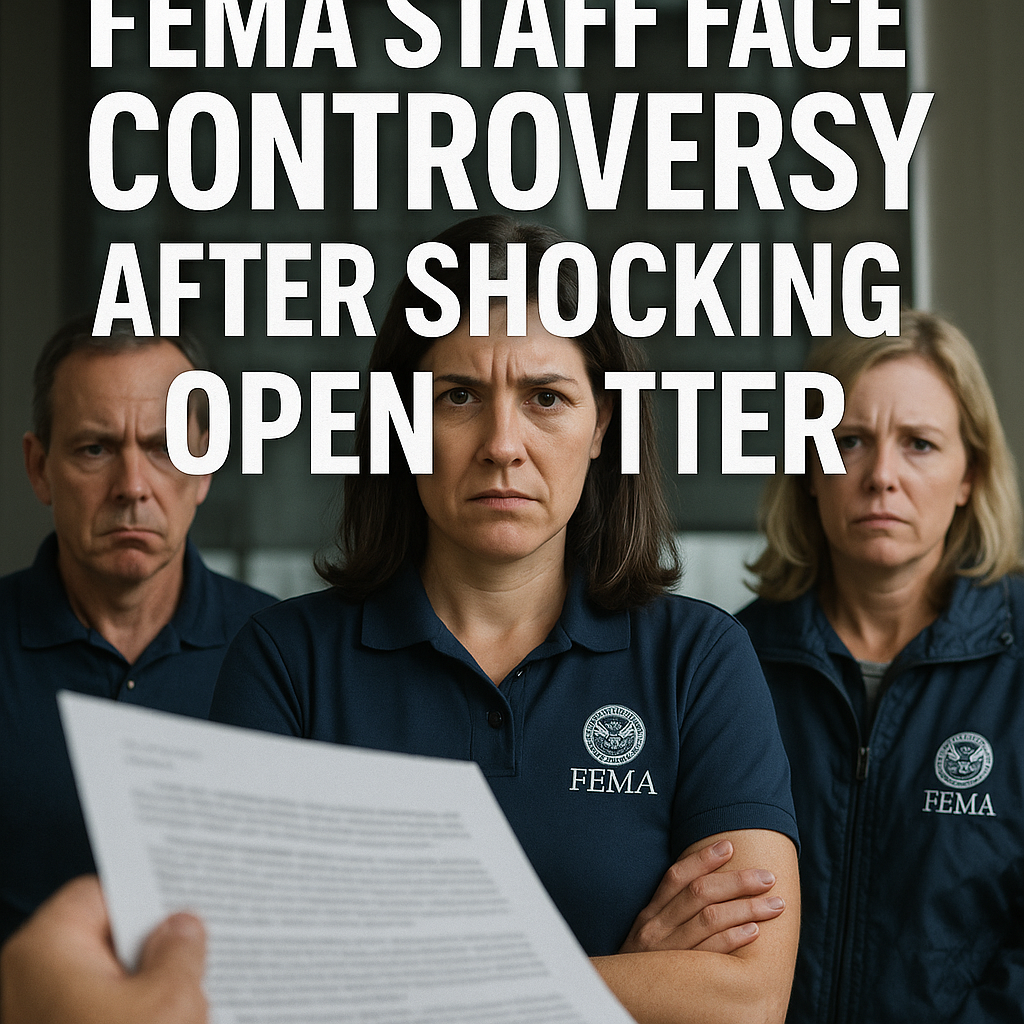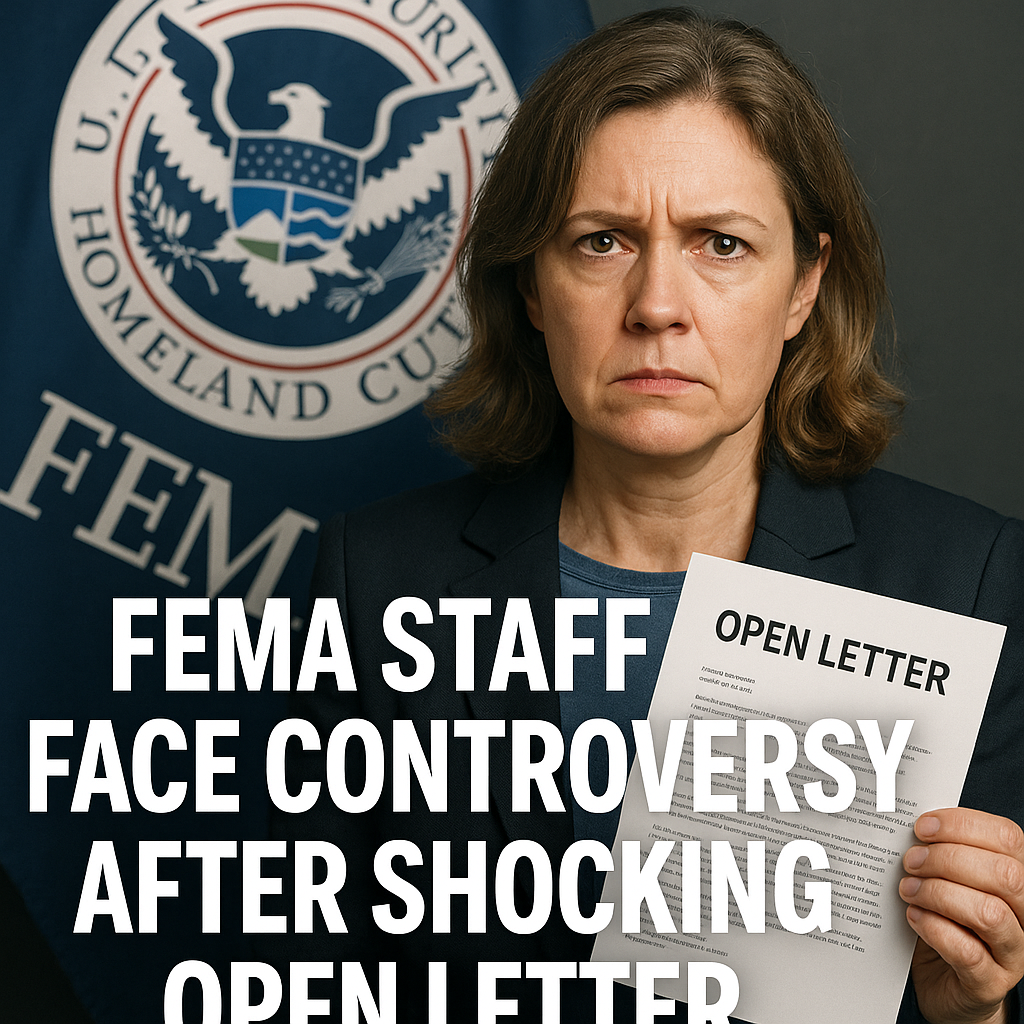FEMA Staff Face Controversy After Shocking Open Letter
FEMA Staff Face Controversy After Shocking Open Letter
FEMA staff face controversy after a shocking open letter, sparking a national conversation about accountability and governance. This development emerged after a group of employees criticized the Trump administration’s handling of disaster response strategies and allocation of resources. In a political landscape saturated with differing opinions, this incident sheds light on the challenges federal employees face when voicing dissent.
The Context of the Open Letter

The open letter, published in various outlets, was a bold move by FEMA employees, arguing that the administration had compromised the agency’s mission. According to reports from Atlanta Daily World, the letter alleges that the Trump administration’s disaster responses were inadequate and poorly organized. The employees expressed concern that political factors were overshadowing the urgent needs of communities recovering from natural disasters.
Key Concerns Raised
– Resource Allocation: FEMA staff pointed out discrepancies in how resources were distributed, suggesting that some areas received less assistance based on political affiliations rather than need.
– Lack of Transparency: The letter emphasized a culture of secrecy, claiming that decision-making processes lacked the necessary transparency, ultimately hindering effective disaster management.
– Employee Morale: The overall morale within the agency was cited as deteriorating, with many employees feeling disillusioned by the leadership and management style of the administration.
These themes resonate with employees who feel their dedication to public service is being undermined by political agendas. Reports from The Atlanta Voice echo these sentiments, noting that the societal expectation is for federal employees to prioritize the public good regardless of their personal beliefs.
Reactions and Ramifications
The fallout from the letter has been palpable, leading to several staff members being placed on administrative leave. This action has ignited protests and support rallies among FEMA colleagues, emphasizing solidarity amongst employees who feel their voices are being silenced.
Diverse Perspectives
Interestingly, the responses to the controversy have varied widely across political and organizational lines:
– Support for the Employees: Many advocates view this letter as a courageous stand for truth, supporting the notion that federal employees should be allowed to express concerns without fear of retribution.
– Criticism of Dissent: Conversely, critics argue that such public statements from federal employees undermine authority and create division within the ranks of government agencies. They worried that airing grievances publicly could detract from the agency’s operational effectiveness.
– Administrative Response: The administration’s response has been mixed, with some officials asserting that necessary measures will be taken to ensure the agency upholds its duty without political interference. However, others have maintained a more defensive posture, framing the dissent as an inappropriate action for civil servants.
A Nuanced Perspective
As the situation continues to unfold, weighing the evidence and sentiments reveals that there is no clear resolution in sight. The complexities surrounding governmental accountability and employee rights come into stark relief. The incident highlights the tension between expressing valid concerns and the protocols federal employees must navigate.
While it’s important that government agencies remain politically neutral, an environment that stifles constructive criticism can lead to long-term consequences for the efficacy and reputation of that agency. The dialogues initiated by this letter have exposed the vulnerabilities within FEMA and federal management as a whole.
Conclusion
In summary, the controversy surrounding the FEMA staff’s open letter serves as a critical touchpoint in the ongoing discussion of government accountability, employee rights, and the role of public servants in political discourse. As this issue continues to develop, it will be essential to observe how the agency and its employees navigate these turbulent waters, balancing their commitment to public service with the realities of a politically charged environment. The outcome of this situation could potentially define not only the future of FEMA but also set a precedent for how federal agencies handle dissent and accountability in a complex political landscape.
As debates on the implications of the open letter unfold, it remains clear that open dialogue and transparency should be at the heart of federal operations.















